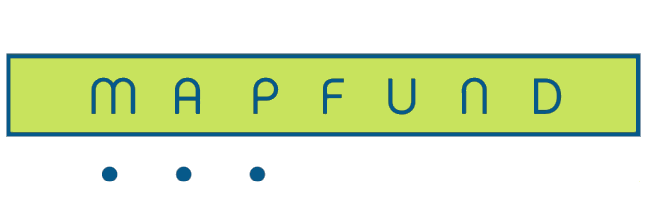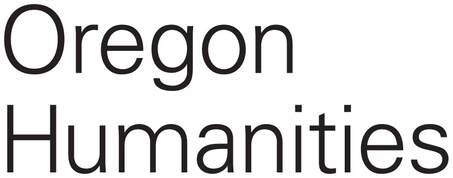The Context Behind "the (W)Hole: Beyond Boom and Bust in Rural America"
As with many other rural communities, the history of the Illinois Valley, a rural community of about 10,000 situated around the town of Cave Junction, has been shaped by economic booms and their inevitable busts--from gold mining to timber to cannabis. The recent regulation of cannabis and resulting statewide oversupply has signaled the newest bust, forcing the community to again search for ways to ‘make a living.’
“The economy, the management of public resources for public good, is a central policy and voting issue--which means it is also a cultural issue,” explains artist and ensemble member Eliot Feenstra. The aim of the show is to work culturally to develop an alternative narrative for rural communities which is collaborative, just, resilient, and forward-looking. “In the wake of the 2016 election and a climate of heightened tension in public dialogue, we believe the arts have a key role to play in expressing and speaking to the heart, igniting our imaginations, and connecting us in revitalizing and building resilient economies which care for people, land, and the future of our rural communities,” added choreographer and ensemble member Gina Angelique.
The (w)HOLE is one phase of Beyond Boom & Bust, a multi-year initiative exploring the topic of rural economies through an artistic lens, focused on the Illinois Valley in southwestern Oregon. During August and September of 2019, collaborating artists interviewed local residents, hosting story circles and town halls in Southern Oregon about the economy, and gathering material for the original show.
The performance ensemble of local and visiting artists brought back together RiverStars co-founders, including: choreographer, farmer, and dancefarm Artistic Director Gina Angelique (Cave Junction); Cave Junction City Council President, arts educator and Dell Arte graduate Lindsey Jones (Cave Junction); dancer and arts educator Kari Kvittem (Selma); and community-based artist and performance scholar Eliot Feenstra (Takilma) who is returning from Toronto for this production. They were joined by environmental activist and dancer Bianca Ballara (Murphy), inter-arts performing artist and performance scholar Sophie Traub (Toronto), videographer Earthen Watson (Port Townsend), lighting designer Chris Hall (Cave Junction), costume designer and farmer Alisa Ocean (Cave Junction), dancer and choreographer Ericka Moore (San Diego), and youth performers Isadora Millay and Finn Franklin.
See ARTISTS BIOS page for more info.
The production and process was supported by generous funding from the MAP Foundation, a national foundation which invests in artistic production as the critical foundation of imagining and co-creating a more equitable and vibrant society; and by Oregon Humanities, a statewide organization which is committed to bringing people together across difference and connecting Oregonians to ideas that change lives and transform communities. It was produced in collaboration with the Illinois Valley Community Development Organization, Southern Oregon Guild, Oregon Shakespeare Festival, and the Rural Organizing Project.
“The economy, the management of public resources for public good, is a central policy and voting issue--which means it is also a cultural issue,” explains artist and ensemble member Eliot Feenstra. The aim of the show is to work culturally to develop an alternative narrative for rural communities which is collaborative, just, resilient, and forward-looking. “In the wake of the 2016 election and a climate of heightened tension in public dialogue, we believe the arts have a key role to play in expressing and speaking to the heart, igniting our imaginations, and connecting us in revitalizing and building resilient economies which care for people, land, and the future of our rural communities,” added choreographer and ensemble member Gina Angelique.
The (w)HOLE is one phase of Beyond Boom & Bust, a multi-year initiative exploring the topic of rural economies through an artistic lens, focused on the Illinois Valley in southwestern Oregon. During August and September of 2019, collaborating artists interviewed local residents, hosting story circles and town halls in Southern Oregon about the economy, and gathering material for the original show.
The performance ensemble of local and visiting artists brought back together RiverStars co-founders, including: choreographer, farmer, and dancefarm Artistic Director Gina Angelique (Cave Junction); Cave Junction City Council President, arts educator and Dell Arte graduate Lindsey Jones (Cave Junction); dancer and arts educator Kari Kvittem (Selma); and community-based artist and performance scholar Eliot Feenstra (Takilma) who is returning from Toronto for this production. They were joined by environmental activist and dancer Bianca Ballara (Murphy), inter-arts performing artist and performance scholar Sophie Traub (Toronto), videographer Earthen Watson (Port Townsend), lighting designer Chris Hall (Cave Junction), costume designer and farmer Alisa Ocean (Cave Junction), dancer and choreographer Ericka Moore (San Diego), and youth performers Isadora Millay and Finn Franklin.
See ARTISTS BIOS page for more info.
The production and process was supported by generous funding from the MAP Foundation, a national foundation which invests in artistic production as the critical foundation of imagining and co-creating a more equitable and vibrant society; and by Oregon Humanities, a statewide organization which is committed to bringing people together across difference and connecting Oregonians to ideas that change lives and transform communities. It was produced in collaboration with the Illinois Valley Community Development Organization, Southern Oregon Guild, Oregon Shakespeare Festival, and the Rural Organizing Project.
STORY GATHERING EVENTS
Through interviews, Story Circles, and public dialogues in partnership with Oregon Humanities, we engaged community members to envision economic possibilities for the region and carry local stories beyond the valley to build vital connections across rural networks. For more information about events that were apart of the development of The (w)HOLE, check out our Past Events page and visit our Facebook page.

